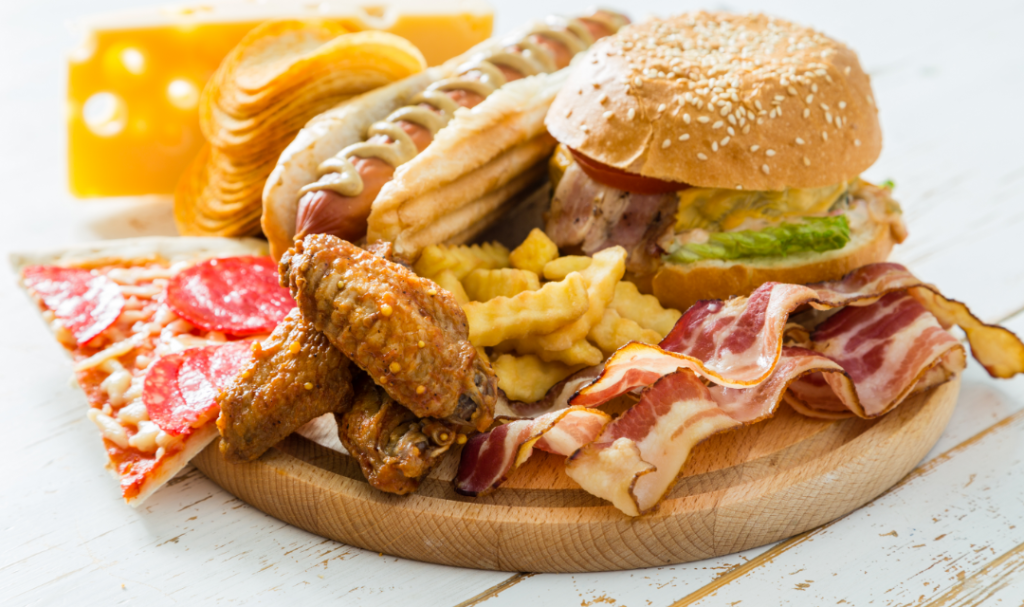Liver-Destroying Foods: What to Avoid for a Healthy Liver

The liver is a vital organ responsible for detoxifying your body, processing nutrients, and producing bile for digestion. To keep your liver functioning optimally, it’s crucial to avoid certain foods and substances that can cause harm. Here’s a guide to liver-destroying foods and habits to steer clear of for a healthier liver.
1. Alcohol
Excessive alcohol consumption is one of the leading causes of liver damage. It can lead to fatty liver, inflammation, and eventually cirrhosis or liver failure.
Tip: Limit alcohol intake to moderate levels—up to one drink per day for women and two drinks per day for men. Consider alcohol-free days each week to give your liver a break.
2. Sugary Foods and Beverages
High sugar intake, especially from sugary drinks like soda and sweetened juices, can lead to fatty liver disease. Excess sugar is converted to fat in the liver, causing inflammation and damage.
Tip: Replace sugary beverages with water, herbal teas, or sparkling water with a splash of lemon or lime. Choose whole fruits over sugary snacks for a healthier option.
3. Trans Fats
Trans fats, found in many fried foods, baked goods, and processed snacks, increase bad cholesterol (LDL) and decrease good cholesterol (HDL). They contribute to liver inflammation and increase the risk of fatty liver disease.
Tip: Avoid foods containing partially hydrogenated oils. Opt for healthier cooking methods like baking, grilling, or steaming instead of frying.
4. Processed Foods
Processed foods often contain high levels of sodium, sugars, and unhealthy fats, all of which can burden the liver. These foods include ready-to-eat meals, canned soups, and processed meats.
Tip: Focus on whole, unprocessed foods. Prepare meals at home using fresh ingredients to control what goes into your food.
5. Excessive Salt
High sodium intake can cause water retention and high blood pressure, which can strain the liver. Processed foods, fast food, and canned products are often high in sodium.
Tip: Limit salt in your diet by avoiding processed foods and cooking with fresh herbs and spices for flavor instead of salt.
6. High-Fat Foods
Diets high in saturated fats from sources like fatty cuts of meat, butter, and full-fat dairy products can contribute to fatty liver disease. These fats can accumulate in the liver and cause inflammation.
Tip: Choose lean cuts of meat, low-fat dairy products, and healthy fats like those found in avocados, nuts, and olive oil.
7. Red Meat
Red meat is high in saturated fats, which can lead to fatty liver disease. Consuming large amounts of red meat can strain the liver and increase the risk of liver damage.
Tip: Limit red meat consumption and opt for plant-based proteins or lean meats like chicken and fish.
8. Artificial Sweeteners
Some studies suggest that artificial sweeteners can negatively affect liver health by disrupting gut bacteria and increasing fat accumulation in the liver.
Tip: Use natural sweeteners like honey or maple syrup in moderation, and reduce your overall intake of sweeteners.
9. Fast Food
Fast food is typically high in unhealthy fats, sugars, and sodium, all of which can burden the liver and contribute to fatty liver disease and inflammation.
Tip: Limit fast food consumption and prepare meals at home with fresh, whole ingredients. Opt for healthier options like salads, grilled items, or homemade versions of your favorite fast foods.
10. Overconsumption of Supplements
While vitamins and supplements can be beneficial, taking them in excess, especially fat-soluble vitamins like A, D, E, and K, can cause toxicity and liver damage.
Tip: Consult with a healthcare provider before starting any new supplement regimen and follow recommended dosages.
Additional Tips for Liver Health
Stay Hydrated: Drinking plenty of water helps the liver flush out toxins and supports its overall function.
Exercise Regularly: Physical activity can help maintain a healthy weight and reduce the risk of fatty liver disease.
Avoid Toxins: Limit exposure to environmental toxins and chemicals, which can also burden the liver.
Eat a Balanced Diet: Focus on a diet rich in fruits, vegetables, whole grains, lean proteins, and healthy fats to support liver health.
Conclusion
Maintaining a healthy liver is essential for overall well-being. By avoiding these liver-destroying foods and making healthier dietary choices, you can protect your liver from damage and ensure it functions optimally. Start making these changes today to promote long-term liver health and overall vitality.




